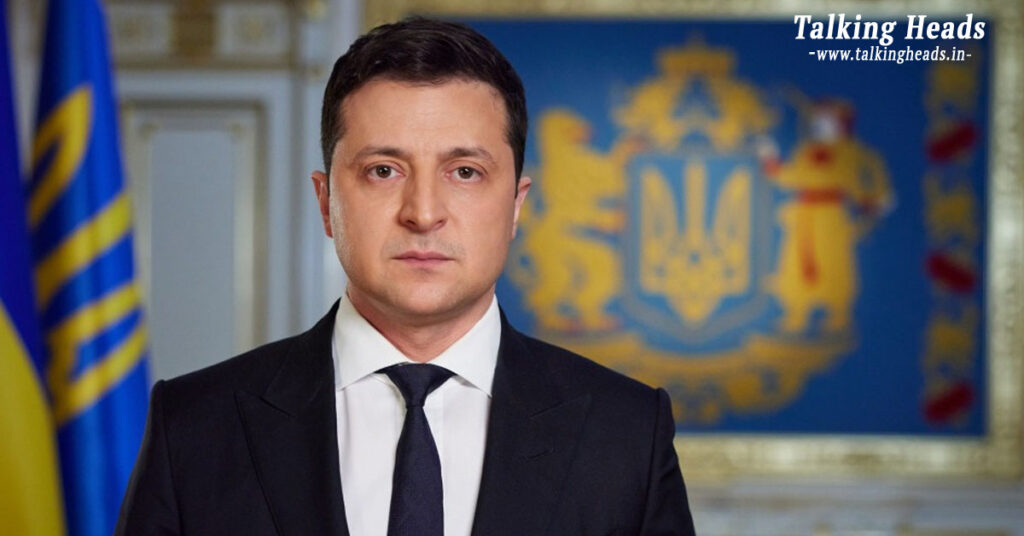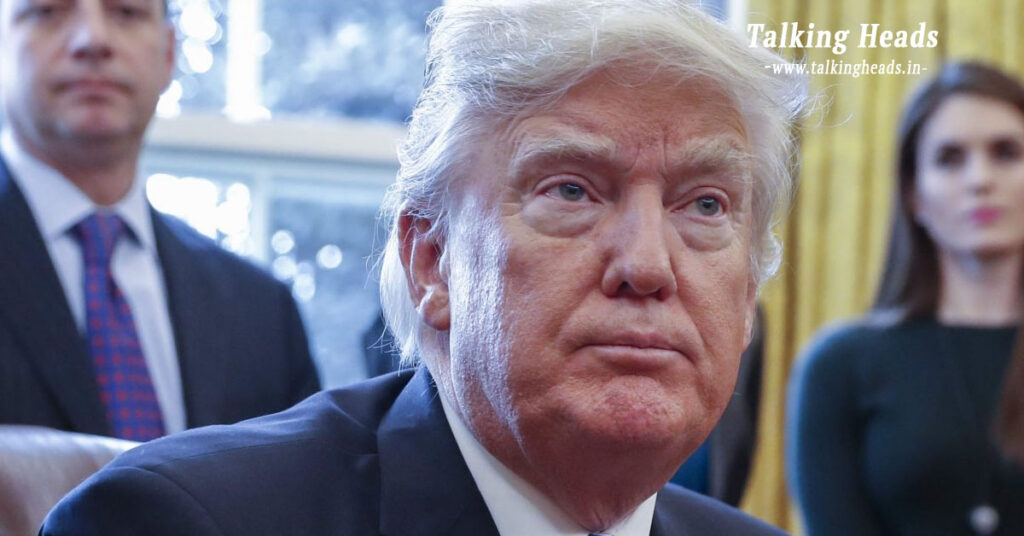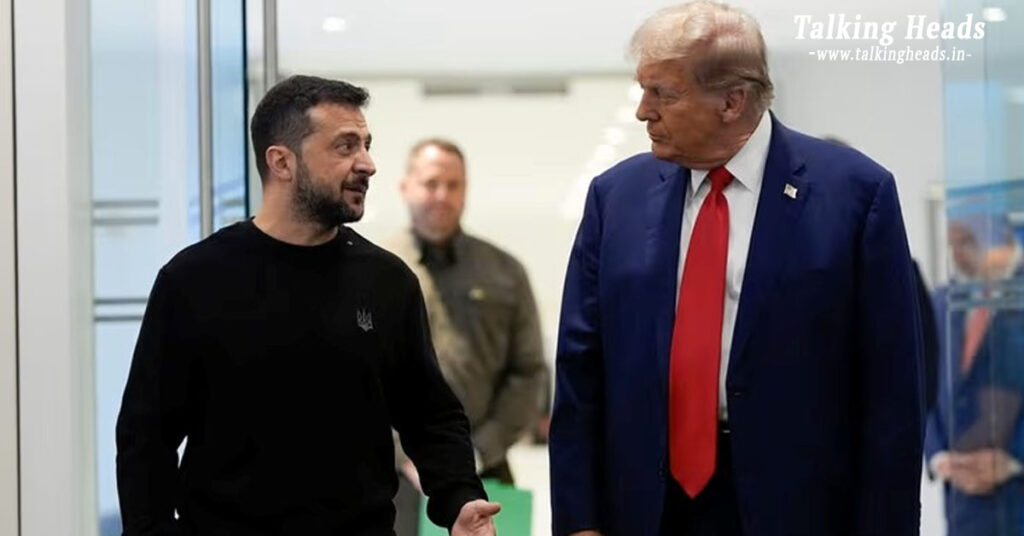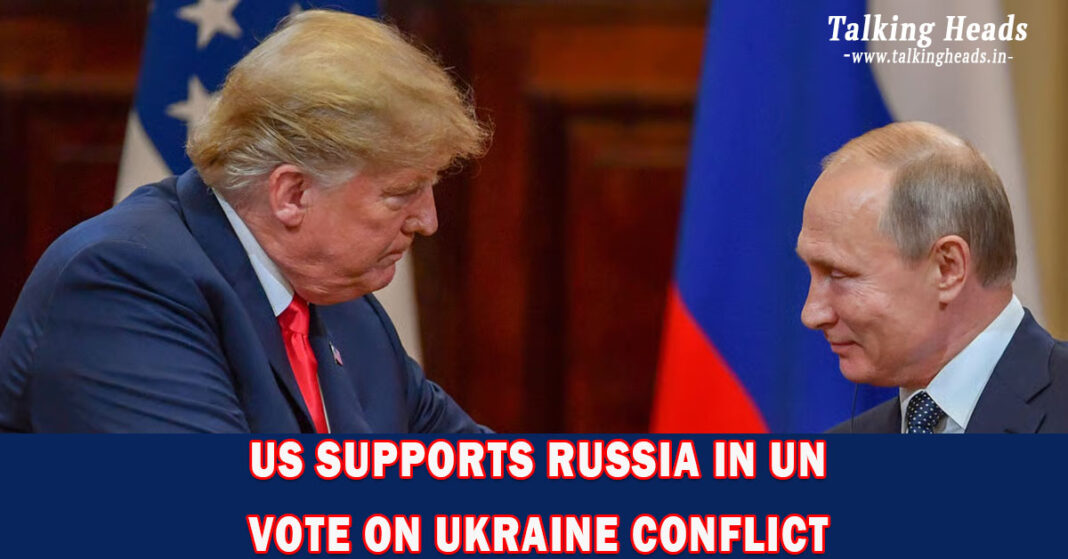On Tuesday, the United States voted in support of Russia during a United Nations (UN) General Assembly session regarding the ongoing Ukraine conflict. This unprecedented move comes on the third anniversary of the war, marking a pivotal shift in American foreign policy. As Ukraine presented a resolution demanding the withdrawal of Russian troops and condemning the Russian invasion, the US broke ranks with its European allies. This vote is significant as it marks the first time both the US and Israel have voted against Ukraine during the war. This article delves into the details of this vote, the reactions it has stirred, and its implications for global diplomacy.
Table of Contents
The Ukraine Proposal at the UN: A Critical Moment

The proposal put forward by Ukraine on the anniversary of Russia’s invasion demanded an immediate withdrawal of Russian forces from Ukrainian territory, the establishment of a just and permanent peace, and accountability for the war crimes committed by Russia. The Ukrainian Deputy Foreign Minister, Marianna Betsa, called for international support for the resolution at the UN assembly in New York.
proposal carried significant weight, focusing on three key objectives:
- Immediate Withdrawal of Russian Forces: A call for the swift return of Ukrainian sovereignty and territorial integrity.
- Permanent and Just Peace for Ukraine: A plea for a stable and lasting resolution to the conflict.
- Accountability for War Crimes: Holding Russia accountable for atrocities committed during the war.
America’s Divergence: A Shift in Policy
In an unexpected turn of events, the United States cast its vote against the Ukrainian proposal, aligning with Russia. This was a stark departure from its previous stance, where it had consistently supported Ukraine. Notably, this is the first time that the US, alongside Israel, has voted in opposition to Ukraine since the war began.
A Disruption in Transatlantic Unity
This vote has sent shockwaves through Europe, especially among the US’s traditional European allies such as Germany, the United Kingdom, and France, all of whom supported Ukraine’s resolution. These countries, once aligned with the US in supporting Ukraine, now find themselves at odds with Washington’s recent decision.
India and China Take a Neutral Stand
While the US took an unexpected stance, many countries, including India and China, chose to abstain from voting, further highlighting the complex geopolitical nature of the Ukraine conflict. A total of 65 nations, including some global powers, refrained from participating in the vote, signaling a divide in international opinion on the matter.
America’s Own Proposal: A More Neutral Approach

Amid the ongoing debate, the United States also presented its own three-paragraph proposal at the UN. However, unlike Ukraine’s resolution, the US proposal did not mention Russia’s actions directly or include any condemnation. Instead, the US expressed sorrow over the loss of life and damages caused by the war, appealing for a swift end to the conflict and urging both sides to seek a lasting peace agreement.
American diplomat Dorothy Camille Shia commented on the matter, emphasizing the futility of such resolutions in halting the war. According to her, the war has dragged on for too long, and both Ukraine and Russia, as well as other regions, have suffered immensely. She pointed out the significant toll the war has taken on civilians, reinforcing the urgency of ending the conflict.
Global Reactions: Diplomatic Tensions Rise
The US vote has stirred considerable tension within diplomatic circles, particularly among European diplomats who have expressed their displeasure with Washington’s shift in policy. Their frustration stems from the fact that a trusted ally has now taken a position in direct contrast to European interests.
Trump vs. Zelensky: A Political Showdown

In the backdrop of this diplomatic upheaval, another drama has been unfolding between US President Donald Trump and Ukrainian President Volodymyr Zelensky. Recently, Trump lashed out at Zelensky, calling him a “minor comedian” and a “dictator without elections.” This attack came after Zelensky had criticized Trump for what he claimed was false information regarding Ukraine’s approval ratings. Trump, in turn, pointed to the devastation caused by the war and blamed Zelensky for the loss of life in Ukraine.
Trump also called for the return of the financial aid that the US has sent to Ukraine, questioning the use of the funds. He emphasized that the US should receive something in return for its contributions, such as rare earth minerals or oil from Ukraine. Zelensky, however, responded by clarifying that the $500 billion assistance provided by the US was not considered a loan and was part of an agreement with President Biden.
Ukraine’s Resolve: Will They Sacrifice for Peace?
As the third anniversary of the Russia-Ukraine war looms, President Zelensky has stated that he is willing to make significant sacrifices for peace. Zelensky expressed a willingness to resign if it would lead to peace, or if Ukraine could secure membership in NATO. His statements underscore his unwavering commitment to securing Ukraine’s future, even at great personal cost.
The Growing Divide in Global Diplomacy
The UN vote, where the US sided with Russia, represents a significant turning point in the diplomatic landscape surrounding the Ukraine conflict. With tensions rising between traditional allies and new geopolitical dynamics coming into play, the war’s future remains uncertain. While Ukraine continues to call for justice and a just peace, the global community’s response is increasingly divided. As international support shifts, the next steps in this conflict will depend not only on the resolution of military engagements but also on the evolving political will of the world’s powers.
This development is more than just a vote in the UN; it’s a reflection of the broader geopolitical shifts occurring in real-time. Whether these shifts will bring about a change in the course of the war or pave the way for a different kind of global engagement remains to be seen.










